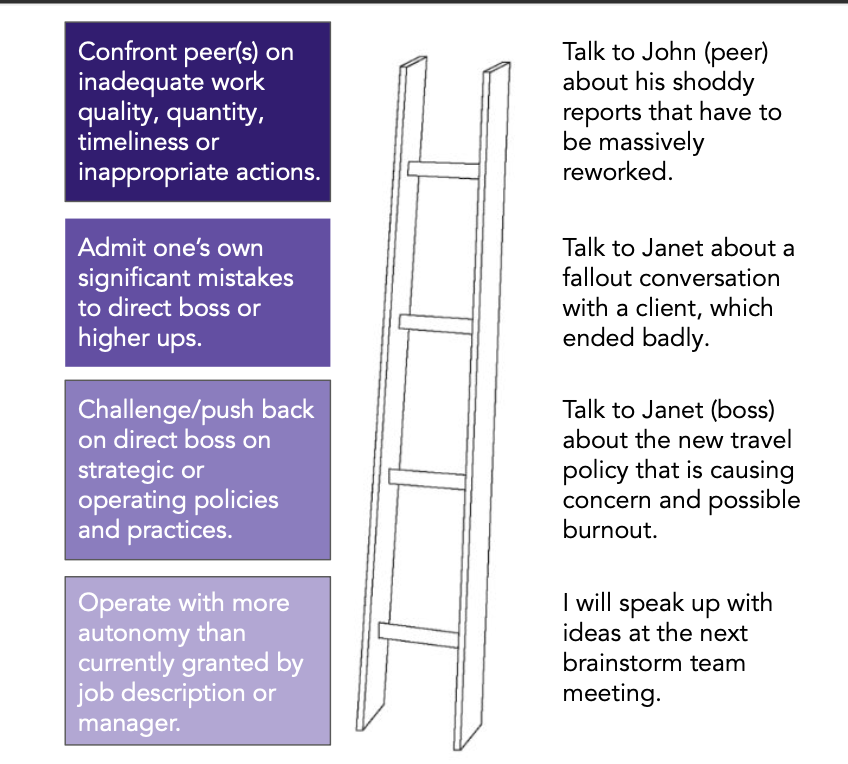Business Ethics 3
1/23
There's no tags or description
Looks like no tags are added yet.
Name | Mastery | Learn | Test | Matching | Spaced |
|---|
No study sessions yet.
24 Terms
Critical Incident Interpretation and Analysis
Consider each situation, taking a step back and evaluating the dynamics between the people.
But also the possible influences of the systems they are in
Questions for Critical Interpretation/Analysis
What are the “invisible” factors that might be influencing the situation?
How are the people in the situation contributing to the dynamic?
What are the relevant facts of the situation? What are the ethical concerns?
How would you, as the manager of the team, handle the situation?
What might managers need to do during critical incidents?
work with cross-functional teams
seek external expertise
leverage technology
think critically
Workplace Courage
taking action at work that feels right/important, to stand up for ppl/cause, despite risk of repercussions
Examples of Career Risks of Work Place Courage
firing
promotions overlooked
loss of reputation
ostracized
Examples of Social Risks of Work Place Courage
social rejection
out of group
severed relationships
Examples of Psychological Risks of Work Place Courage
feeling stupid/incompetent/failure
embarrassment
negative perception from others
Why your courage matters TO OTHERS
protect others
solve problems
avert disasters
human/financial cost of inaction
Why your courage matters FOR YOURSELF
Legacy and regret
Aristotle’s Definition of Courage
a virtue of character which stands between cowardly or fearful and reckless or overconfident.
5 Essential Properties of Courage
free choice
risk of harm
risk assessed as reasonable and act is justifiable
pursuit of worthy aims
mindful action despite fear
Courage as a virtue: altruistic
sacrificing personal interest to help others/achieve worthy goal
Courage as a virtue: Cognitive
based on goal-directed reasoning
Courage as a virtue: Ethical
Achieving worthy goal
Courage as a virtue: Emotional
overcoming fear
Managerial Courage; To Act
focuses on action/leadership
low-middle level intensity and high control
Managerial Courage: TO Be
courage perceived as more reactive
high emotional intensity/low control
Acting Courageously: Personal Governance Practices
Emotional signaling
Reflective pause
Self-regulation
Moral prep
Emotional Signaling
Other ppl’s emotions affecting our impression of their motives/choices/reactions > relates to understanding
Reflective Pause
regular introspection to identify whats working and what needs change
ex. journaling, meetings
Self-Regulation
regulation without external intervention
makes self control possible
Moral Preparation
Recognize ethical problem exists
If Then-Plan
Using specifics to set goals and increase chance of success
Courage Ladder
High>No courage
